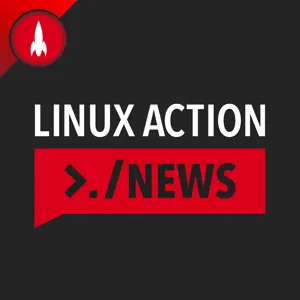RCN #33 - Istio, Fedora, Deno, OpenStack’s 2022 User Survey, & more!

Get the week's news on Kubernetes, the cloud native landscape, and the wider world of tech. Co-hosts Eric Gregory and Nick Chase break through the jargon and help you make sense of it all.
This week, Eric & our favorite recurring guest host John Jainschigg talk new releases from Istio, Fedora & Deno, OpenStack's 2022 User survey, and are we really "turning off the microservices?" That & more in this week's jam-packed episode.
We'd also like to point you all towards our "Sister Show" - Cloud Native & Coffee - hosted by our very own John Jainschigg. CN&C features longer form conversations with Kubernetes experts, cloud native innovators, and open source champions from across the industry & around the world. Find full episodes of Cloud Native & Coffee wherever you can find Radio Cloud Native, or catch us live every other Thursday at 1PM EST on the Mirantis LinkedIn page: https://www.linkedin.com/company/mirantis/events/
A full list of topics for this week's episode include:
- Announcement: check out our "Sister Show" Cloud Native & Coffee
- Choozle leverages Lens Autopilot to move faster with Kubernetes
- Istio announces the release of version 1.16
- Spotify Backstage vulnerability discovered & patched before it causes any real damage
- GitHub adds procedure for private vulnerability reporting
- IBM discontinues IoT device management offering
- Twitter blue check fracas & Twitter 2.0
- Deno 1.28 brings 1.3M npm modules
- Fedora Linux 37
- OpenStack's 2022 User Survey
As mentioned by Eric, this (RCN #49) will be the final episode of Radio Cloud Native (in it's current format).
Please keep the podcast in your feed and keep an eye out for fresh content. Sometime early in this new year, the team at Mirantis is planning to revamp Radio Cloud Native (possibly under a new name, but accessible from this same RSS feed).
Thank you to all of our listeners that kept Radio Cloud Native going over the past two-or-so years. And a special thanks as well as good luck to long-time host Eric Gregory as he pursues future endeavors outside of Mirantis. Stay tuned for more podcasts from Mirantis in 2024!







